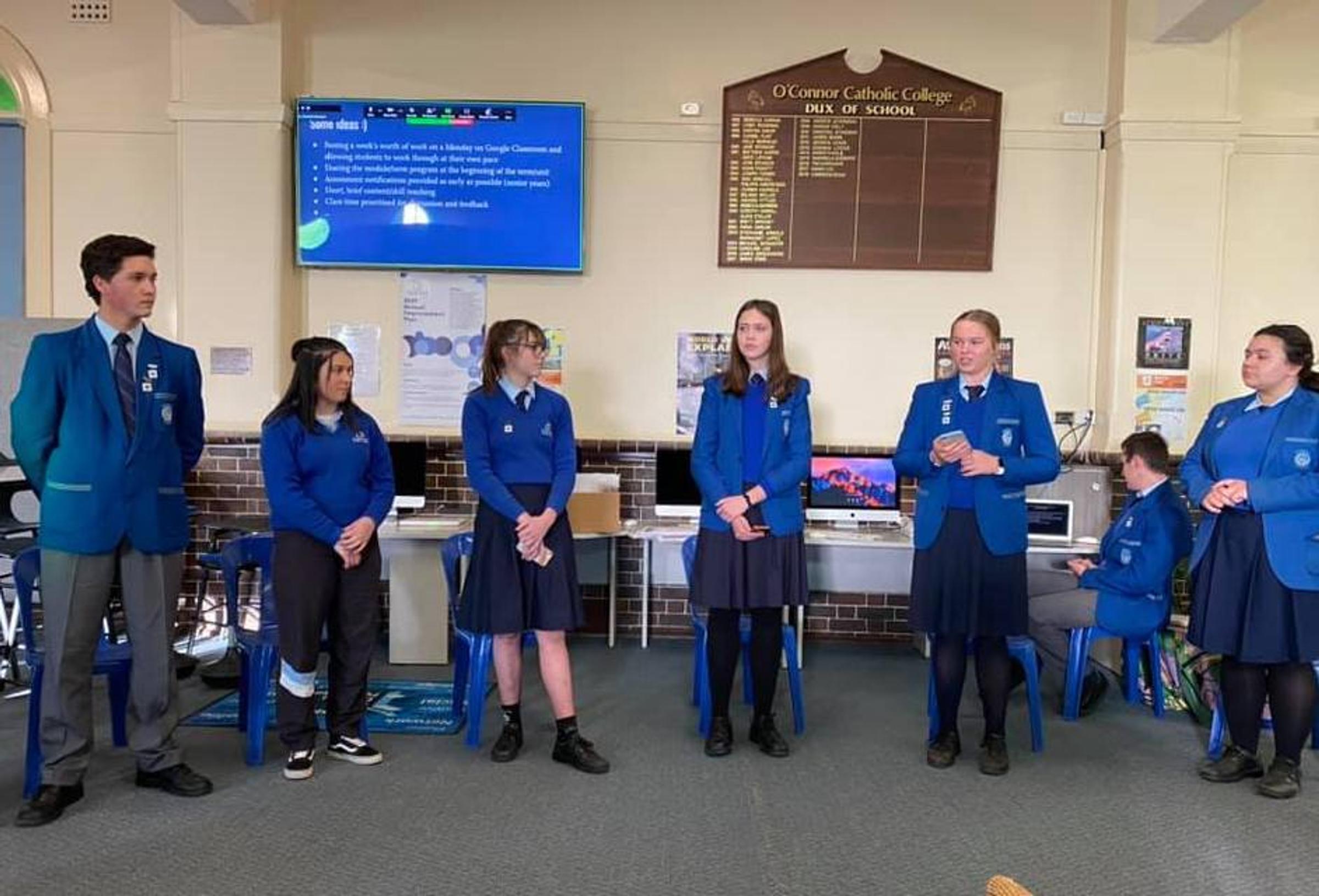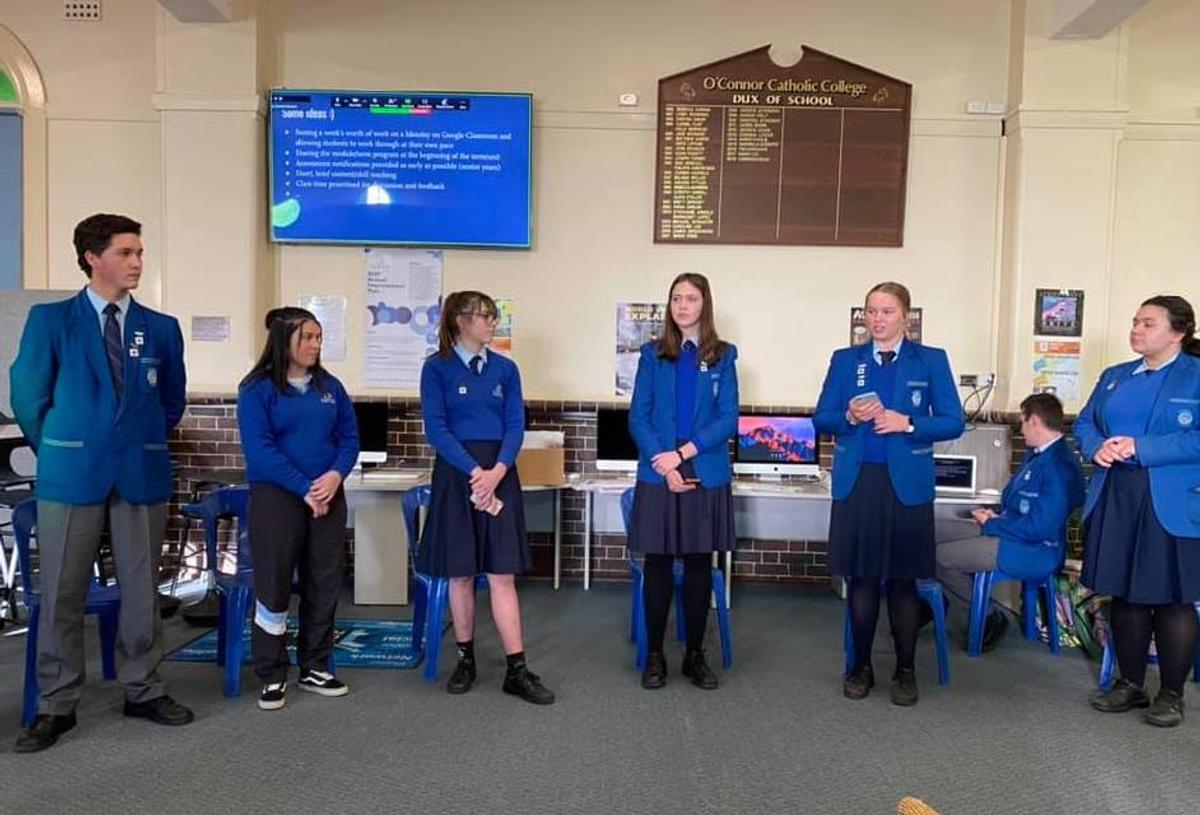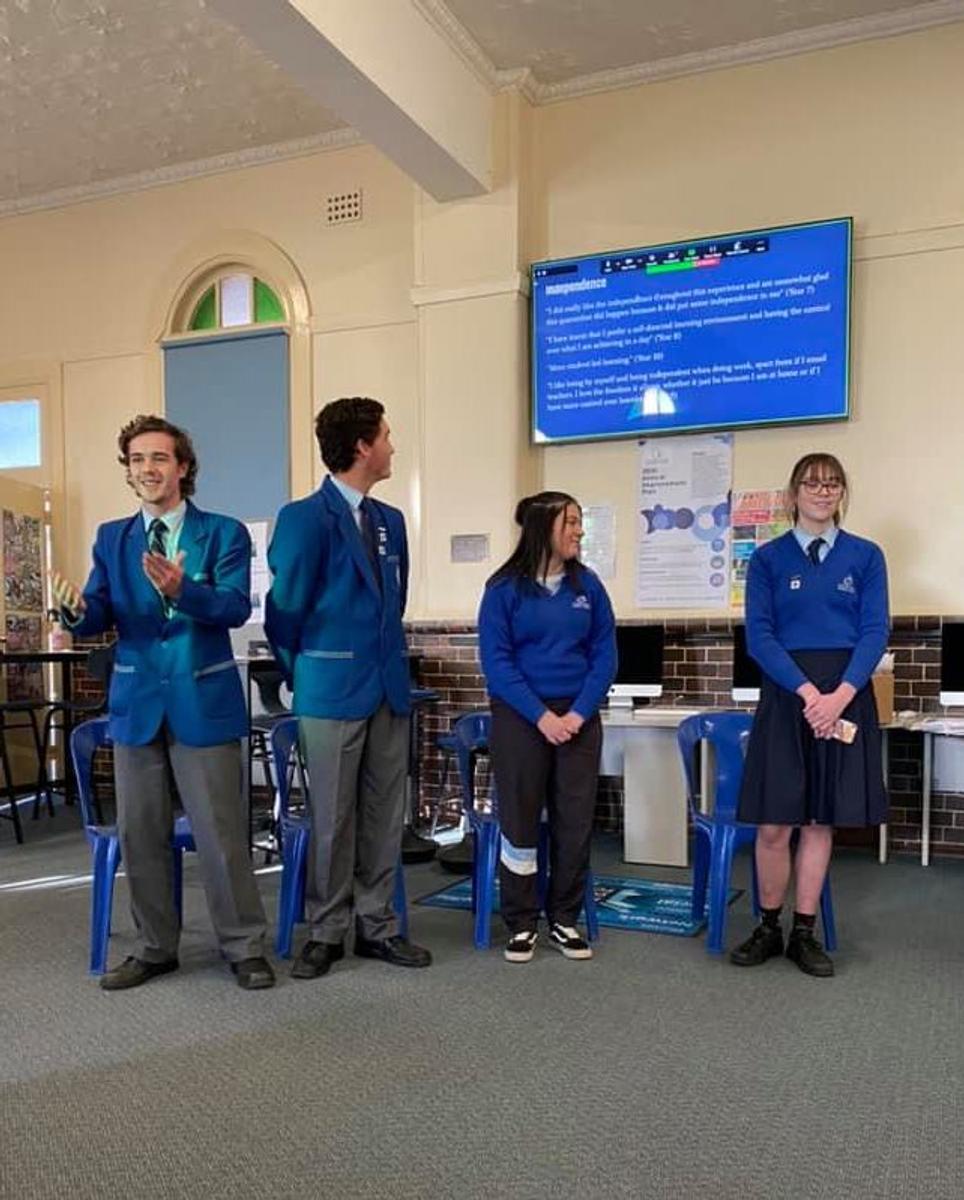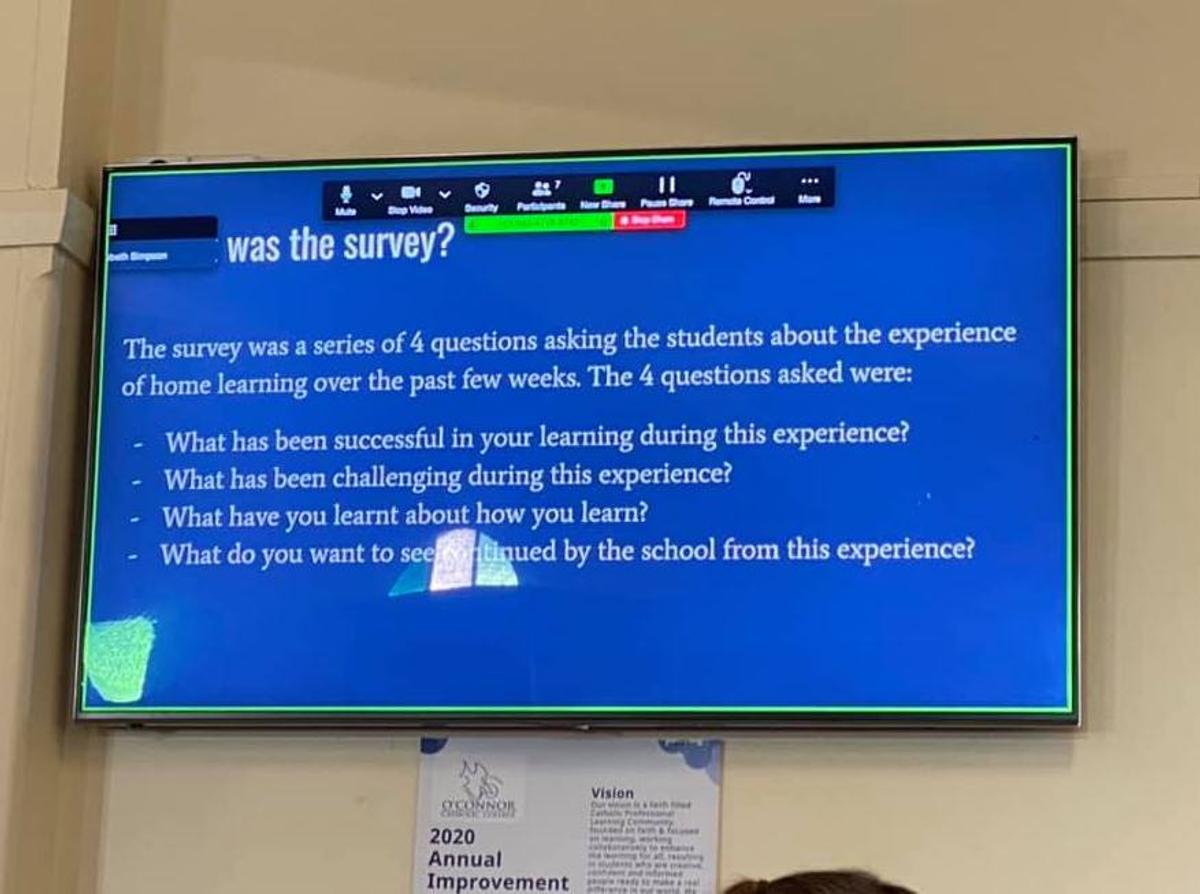Student Representative Council (SRC)Report

Student Representative Council Report
In the past two months, we have gone through an experience that most people have never had to before. Our everyday life has been significantly impacted and along with this disruption, our learning experiences have been radically different as we have moved from face-to-face learning, to connected learning offsite, to a return to face-to-face learning. The changes have, at times, been unsettling, rewarding, illuminating and informative. But what has become evident is the need for us, as students, to actively participate in our education. It is important that we reflect on our learning over this time, and feedforward to our teachers so that, together, we can work to improve our learning opportunities and experiences and identify what works best for us in this contemporary world.
Over the past few weeks, the Student Representative Council has been working collaboratively to seek feedback from our learning community and to raise the voice of all students at O’Connor Catholic College. The senior leadership of the SRC worked together to identify four questions that would enable us to gather the most relevant information as they best encapsulated all aspects of the experience and we then surveyed students from each year. The questions we asked were:
- What has been successful in your learning during this experience?
- What has been challenging during this experience?
- What have you learnt about how you learn?
- What do you want to see continued by the school from this experience?
The overall response from each year was clear. Our students want:
INDEPENDENCE - Allowing students to grow and be independent in their OWN learning without having to rely solely on the teacher for motivation and guidance
FLEXIBILITY - Flexibility to work on tasks at the student’s own pace
TRUST - Trust from teachers to students, trust in students learning progress, trust that they can monitor and measure their commitment to learning
PHOTO: (L to R) Nikolai Tursan D’Espaignet, Isabella Craig, Lily Roff, Eliza Boland, Lara Moloney, Jacob Lynch (sitting) Abbey Thomas.
We presented our results to the teachers during their Professional Learning Meeting on the 27th of May. As nerve wracking as it was, the presentation ran smoothly and we professionally presented our findings. After discussing the results and implications of these results we surveyed the teachers using similar questions so that we could get their perspective of the teaching and learning experience their own concerning possible changes to student learning.
PHOTO: Ehan Boshoff speaks to the College Staff during the SRC presentation.
The next step in successfully making an impact on our learning is surveying the parents. This way we can get the viewpoint from those who watched their children work from home. The questions we are using are based on those that we gave both the student body and the teachers:
What was successful in your child’s learning during this experience?
What was challenging in your child’s learning during this experience?
What have you learnt about how your child learns?
What do you want to see continued by the school?
So, where to next? The whole point of this process is to evolve the way we learn. To give the students a voice. Students having a voice is imperative in the adaptation of our learning. The students of O’Connor have spoken. From the given feedback we’ve come up with 5 ideas that we’d like the school to take into consideration and maybe make a change.
- Posting a week’s worth of work on a Monday on Google Classroom and allowing students to work through at their own pace (INDEPENDENCE), which allows for the teacher to walk through the classroom, talking to students individually and giving support and feedback when needed.
- Sharing the module/term program at the beginning of the term/unit - allowing those students who like to get ahead the opportunity to do so as well as providing insight into the plans for their learning (FLEXIBILITY)
- Assessment notifications provided as early as possible (Senior Years) - (INDEPENDENCE & FLEXIBILITY) - decreases the pressure of assessments, allows students to work on them for longer, and gives students a greater chance of getting better results.
- Short, brief content/skill/concept teaching. This allows teachers to prioritise short parts of the lesson for explicit teaching but promotes the majority of the class time to be used for discussion/feedback/and working through task at student’s own pace (FLEXIBILITY, INDEPENDENCE & TRUST)
- A possible ‘study day’ at home for students - (TRUST) - Monitoring students during study days but still allowing for (FLEXIBILITY) in how they learn and study (INDEPENDENCE)
This is our opportunity to make a change. To give students a voice about our core business - LEARNING!!!! If we do not recognise that the events that have occurred and those that are still occurring have impacted on our learning then we are never going to grasp the opportunities that have arisen. We had a short snippet of what could be and many aspects worked - so doesn’t it make sense that we start to adopt the positives into our learning?
Eliza Boland (Year 11 Representative)
The SRC Senior Leadership Team
Eliza Boland, Ehan Boshoff, Isabella Craig, Jacob Lynch, Lara Moloney, Lily Roff, Abbey Thomas, Nikolai Tursan D'Espaignet



